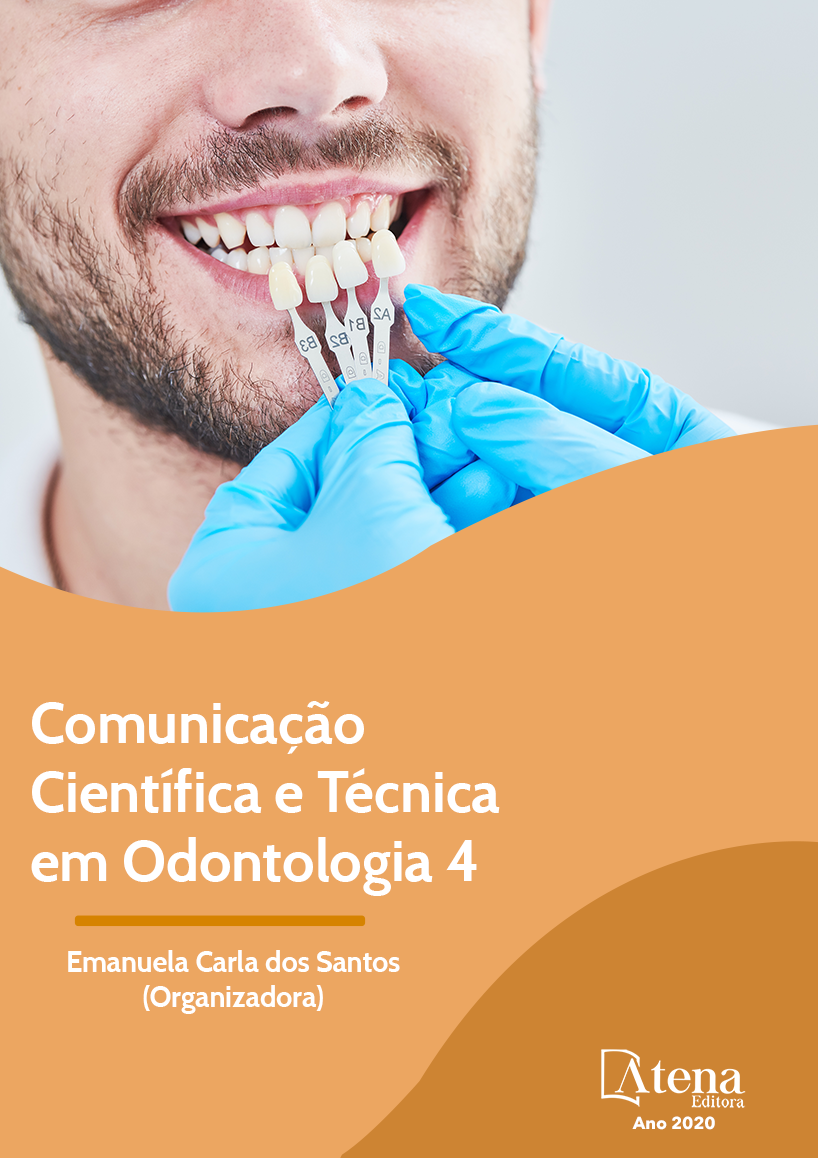
Degradação de material reembasador resiliente: estudo in vitro
Na cavidade bucal existem diversos micro-organismos, onde seus metabólitos podem promover alterações superficiais e microestruturais dos compósitos comprometendo suas propriedades. Este estudo buscou avaliar, in vitro, a degradação de uma resina reembasadora Coe – Soft exposta a diferentes ambientes. Foram confeccionados 100 corpos de prova a partir desta resina reembasadora, os quais foram divididos em cinco grupos (N=20): o grupo controle externo em temperatura ambiente (G1), o grupo seco a 37ºC (G2), um grupo foi imerso a solução Salina a 37ºC (G3), outro grupo foi imerso em contato com o Caldo Nutriente a 37ºC(G4), e outro grupo foi imerso ao Caldo Nutriente associado a Cândida albicans amostra a 37ºC (G5). Após o período laboratorial as amostras foram submetidas à análise da superfície através dos testes de microrrugosidade, microscopia óptica invertida e microdureza Shore A. Os resultados obtidos foram submetidos à análise descritiva, e os resultados foram tabelados, e analisados. A degradação causada nos grupos G2, G4 e G5 foram capazes de alterar a superfície e a microestrutura do material avaliado in vitro. Conclui-se que a presença da Cândida albicans altera a longevidade dos reembasamentos realizados com esse material, podendo em contato com microorganismos presentes na cavidade oral aumentar a rugosidade do material reembasador avaliado.
Degradação de material reembasador resiliente: estudo in vitro
-
DOI: 10.22533/at.ed.6152024018
-
Palavras-chave: Cândida albicans. Solução Salina. Resina reembasadora
-
Keywords: Cândida albicans. Saline solution. Relining resin
-
Abstract:
In the oral cavity there are several microorganisms, where their metabolites can promote superficial and microstructural changes of the composites compromising their properties.
This study aimed to evaluate, in vitro, the degradation of a Coe-Soft reline resin exposed to different environments, 100 specimens were made from this relining resin, which were divided into five groups (N = 20): the external control group at room temperature (G1), the dry group at 37ºC (G2), a group was immersed in Saline solution at 37ºC (G3), another group was immersed in contact with the Nutrient Broth at 37ºC (G4), and the last group was immersed in the Nutrient Broth associated with Candida albicans sample at 37ºC (G5).
The samples were subjected to surface analysis by micro-roughness, inverted light microscopy and Shore A microhardness tests.
The results were submitted to descriptive analysis, and the results were tabulated and analyzed. The degradation caused in groups G2, G4 and G5 were able to alter the surface and microstructure of the material evaluated in vitro.
It can be concluded that the presence of Candida albicans alters the longevity of the relining performed with this material and, in contact with microorganisms present in the oral cavity, increase the roughness of the evaluated relining material.
-
Número de páginas: 17
- Augusto César Sette-Dias
- Frederico Santos Lages
- Cláudia Lopes Brilhante Bhering
- Renata Gonçalves de Paula
- Roberta Laura Valadares
- Dyovana Wales Silva
- William Kokke gomes


